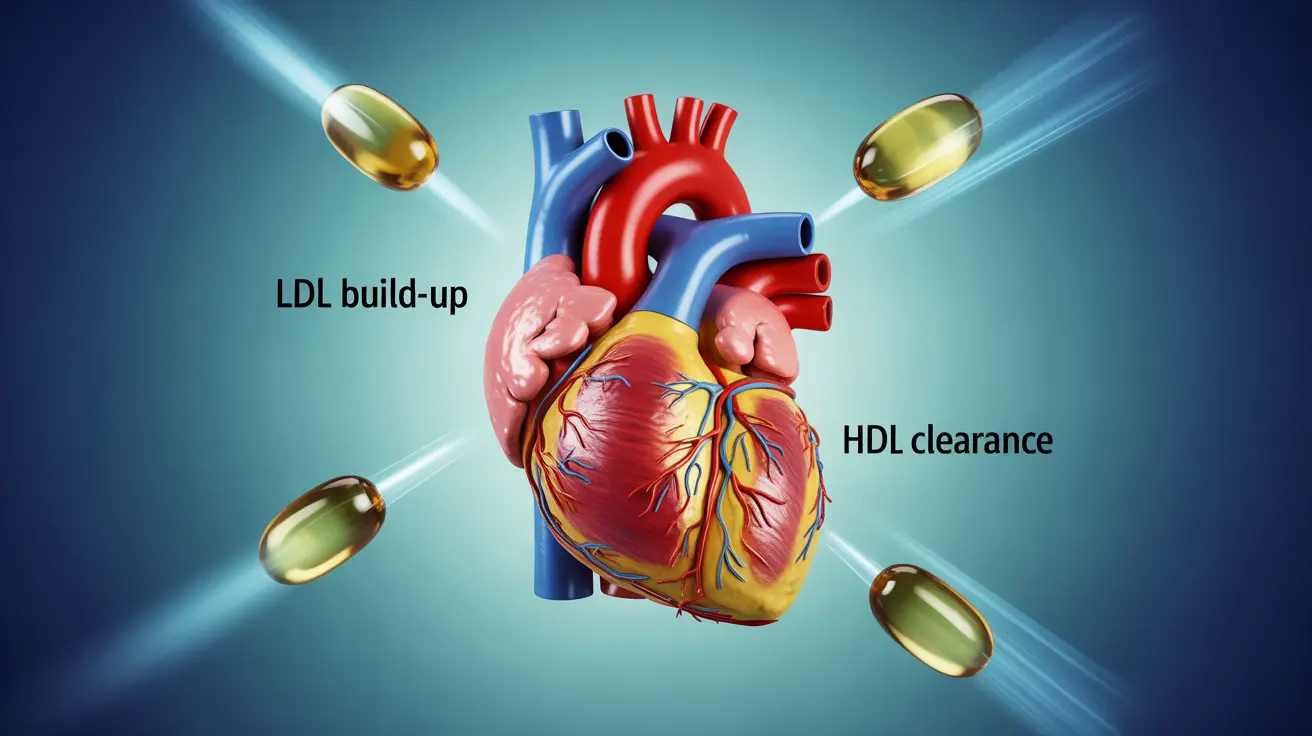If you're looking for natural ways to manage your cholesterol levels, you may have heard about krill oil supplements. These tiny crustacean-derived supplements have gained attention for their potential heart health benefits, particularly in relation to cholesterol management. Let's explore the scientific evidence behind krill oil's effects on cholesterol levels and cardiovascular health.
Understanding Krill Oil and Its Components
Krill oil is extracted from Antarctic krill, tiny shrimp-like creatures that contain beneficial omega-3 fatty acids, primarily EPA and DHA. What makes krill oil unique is that these omega-3s are bound to phospholipids, potentially making them more bioavailable than the triglyceride form found in fish oil. Additionally, krill oil contains astaxanthin, a powerful antioxidant that may provide extra cardiovascular benefits.
How Krill Oil Affects Cholesterol Levels
Research suggests that krill oil may help improve cholesterol profiles in several ways:
- Reduces LDL (bad) cholesterol levels
- Increases HDL (good) cholesterol
- Lowers triglycerides
- Decreases inflammation markers
The phospholipid structure of krill oil's omega-3s may enhance their incorporation into cell membranes, potentially leading to better cholesterol-lowering effects compared to traditional fish oil supplements.
Krill Oil vs. Fish Oil for Heart Health
While both krill oil and fish oil contain beneficial omega-3 fatty acids, krill oil has some distinct advantages:
- Better absorption due to phospholipid structure
- Additional antioxidant benefits from astaxanthin
- Typically requires lower doses for similar effects
- Less likely to cause fishy burps or aftertaste
Proper Dosage and Administration
For cholesterol management, research suggests the following dosage guidelines:
- Standard daily dose: 500-2000mg
- Best taken with meals for optimal absorption
- May be split into multiple doses throughout the day
- Consider starting with a lower dose and gradually increasing as needed
Safety Considerations and Potential Side Effects
While krill oil is generally considered safe for most people, there are some important considerations:
- May interact with blood-thinning medications
- Not suitable for those with shellfish allergies
- Could cause mild digestive issues in some people
- Should be discontinued before surgery
Maximizing Benefits for Cholesterol Management
To optimize krill oil's cholesterol-lowering effects, consider these complementary approaches:
- Maintain a heart-healthy diet
- Exercise regularly
- Monitor cholesterol levels regularly
- Consult healthcare providers about dosage and interactions
- Combine with other lifestyle modifications for best results
Frequently Asked Questions
Does krill oil help lower bad LDL cholesterol and raise good HDL cholesterol?
Yes, research indicates that krill oil can help lower LDL cholesterol while potentially increasing HDL cholesterol levels. The phospholipid-bound omega-3s in krill oil appear to be particularly effective at improving overall cholesterol profiles.
How does krill oil compare to fish oil in improving cholesterol and heart health?
Krill oil may be more effective than fish oil due to its unique phospholipid structure, which can enhance absorption. Additionally, krill oil contains astaxanthin, providing additional antioxidant benefits not found in standard fish oil supplements.
What is the recommended dosage of krill oil for lowering cholesterol and triglycerides?
The typical recommended dosage ranges from 500-2000mg daily, depending on individual needs. It's best to start with a lower dose and adjust based on response and healthcare provider recommendations.
Are there any side effects or safety concerns when taking krill oil for cholesterol management?
While generally safe, krill oil may cause mild digestive issues and can interact with blood-thinning medications. Those with shellfish allergies should avoid krill oil. Always consult with a healthcare provider before starting supplementation.
How long does it take to see cholesterol improvements after starting krill oil supplements?
Most studies show that it typically takes 6-12 weeks of consistent supplementation to see measurable improvements in cholesterol levels. Regular monitoring and patience are important for tracking progress.




